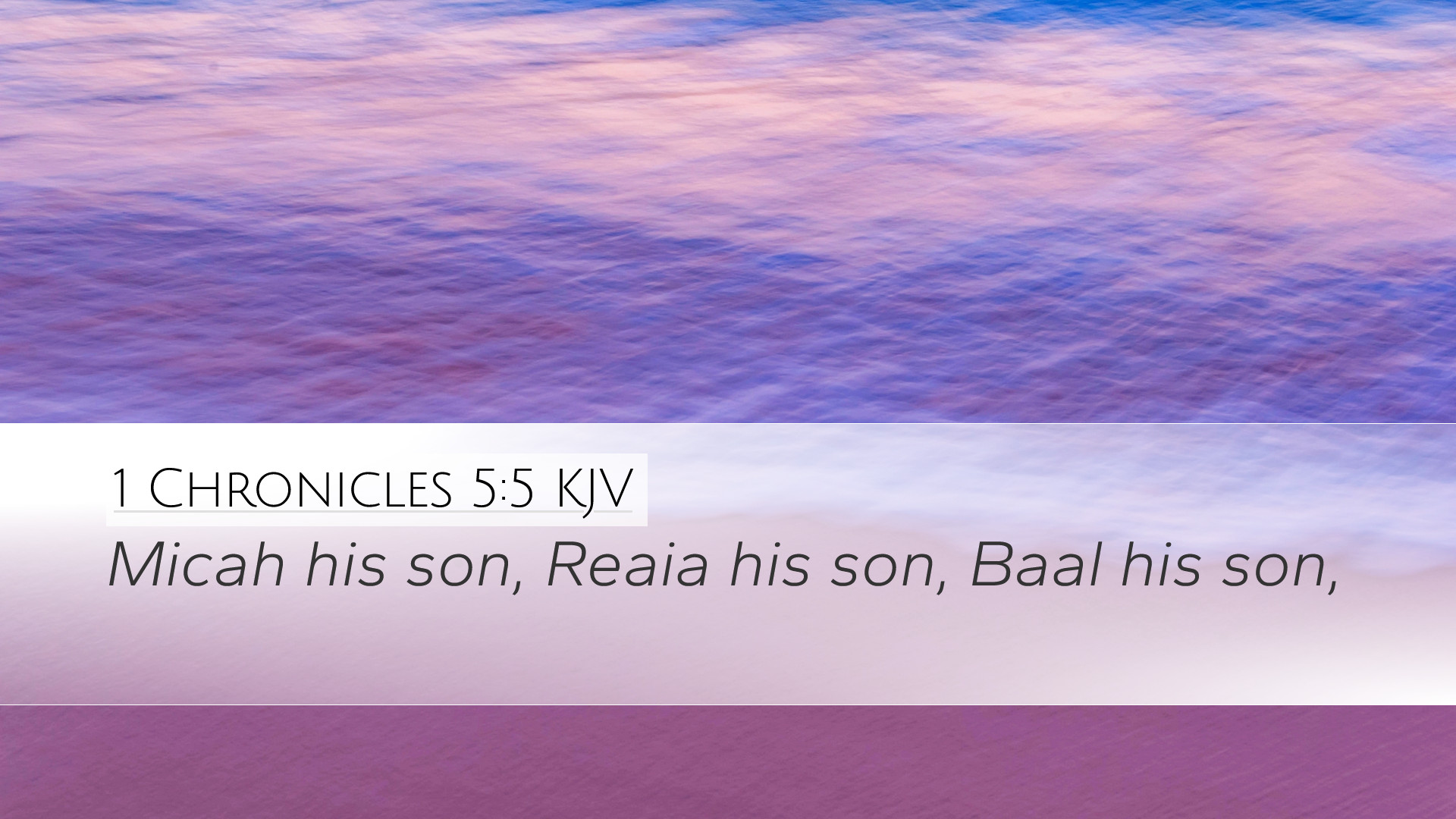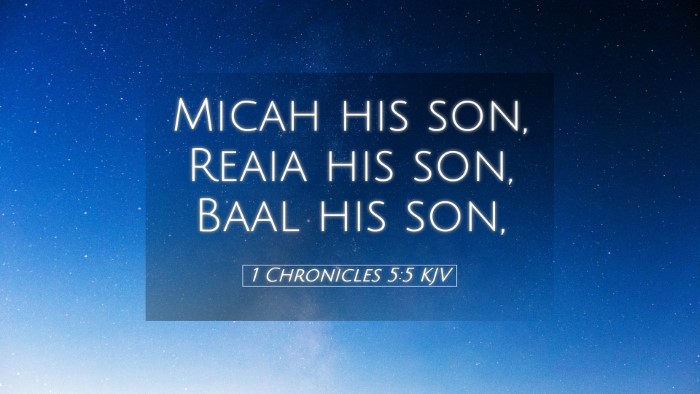Commentary on 1 Chronicles 5:5
Verse: 1 Chronicles 5:5 states, “Bel and the sons of Miklah: Miklah was the father of Shimeon. ”
Overview
This brief verse presents a genealogy that connects the tribe of Reuben to significant developments within Israel’s history. The importance of genealogy in the Old Testament cannot be overstated; it establishes identity and kinship. The genealogies often serve to connect God's covenant promises through specific lineages.
Interpretation and Insights
According to Matthew Henry, the genealogies found in Chronicles aim to affirm the continuity of God’s promises through His chosen people. In particular, this verse connects individual names to broader redemptive history, illustrating how God worked through particular families.
Albert Barnes adds that the name "Shimeon" is essential as it ties back to the tribe of Reuben. Barnes suggests that the act of naming serves as a cultural anchor for the Israelite community; this connection to their ancestors lays the foundation for future generations. It reminds the Israelites of their heritage and inspires a sense of unity and purpose.
Adam Clarke elaborates on the cultural significance of such genealogical records. He argues that understanding one’s lineage was critical for the Israelites as they perceived themselves as a covenant people. This acknowledgment is vital in maintaining societal structures and understanding divine ordination within the specified tribes.
Theological Implications
The naming of individuals in this genealogy goes beyond mere record-keeping; it reflects divine providence in the unfolding of His plan. Both Matthew Henry and Albert Barnes emphasize that each name mentioned carries weight in God’s overarching narrative. It points toward themes of heritage and continuity within the covenant community, which resonates with God’s promise to preserve His people.
- Covenant Promise: The mention of these names reflects God's covenantal faithfulness towards Israel, as noted by Clarke.
- Divine Sovereignty: The inclusion of each individual shows the meticulous planning of God in the unfolding of history, as seen in Henry's interpretations.
- Identity Formation: The genealogies help form the collective identity of the Israelites as the chosen people, in line with Barnes’ observations.
Practical Applications for Today
This verse teaches contemporary believers about the importance of identity in Christ. Just as historical genealogies mattered to the Israelites for understanding their relationship with God, so too should modern Christians appreciate their identity as sons and daughters of God.
- Understanding Heritage: Recognizing one’s spiritual heritage can enhance community within the church.
- Emphasizing Continuity: Believers should remember that they are part of a larger narrative stretching back to biblical times, reflecting on God’s faithfulness.
- Encouraging Unity: Genealogies can serve as a reminder of our interconnectedness within the body of Christ, fostering mutual support.
Conclusion
1 Chronicles 5:5, while brief, encapsulates significant theological themes relevant for pastors, students, and theologians. Through the genealogies, readers gains insights into God’s unwavering commitment to His people and the importance of identity and heritage. As ancient genealogies remind us of covenantal relationships, modern believers are called to reflect on their identity in Christ and the continuity of God’s work through generations.


